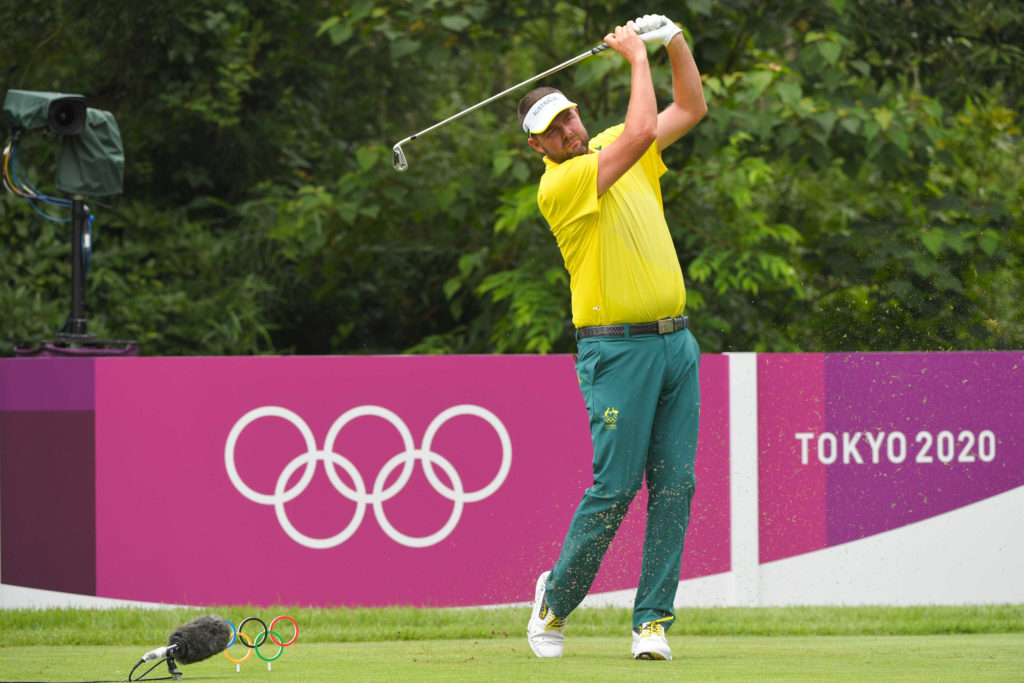Imagine for a moment that you turn on the news next week and hear that Rohan Browning has qualified fastest for the semi-finals of the men’s 100-metre sprint.
Imagine for a moment that you turn on the news next week and hear that Rohan Browning has qualified fastest for the semi-finals of the men’s 100-metre sprint.
Rohan who?
Rohan is the first Australian to contest the men’s Olympic 100 metres in 17 years and if he does qualify for the final will go from obscurity outside of athletics to a Weet-Bix packaging poster boy in little more than 10 seconds.
Now consider for a moment how Sepp Straka’s round of eight-under 63 to lead the men’s golf competition by two strokes – a competition that includes 12 of the top 30 players in the world and 2021 major winners Hideki Matsuyama and Collin Morikawa – might be hitting Austrians full to the brim with Olympic spirit.
Austria’s three medals to date at Tokyo 2020 have come in cycling (one gold) and judo (a silver and bronze medals) so for a country of almost nine million people – and of whom only 100,000 are registered golfers – a golden golf moment has the potential to be transformative for the game in that country.
Before play was suspended on Thursday due to the threat of dangerous weather as some players only just entered the back nine at Kasumigaseki Country Club, the opening round of the men’s golf competition threw up a number of familiar names for regular golf followers.
Belgian Thomas Pieters (65, T-2) is a four-time European Tour winner, Carloz Ortiz (65, T-2) is a winner on the PGA Tour and Viktor Hovland (67), Paul Casey (67) and Xander Schauffele (68) are all inside the top-25 in the Official World Golf Rankings.
But those who question golf’s validity as an Olympic sport citing the players not in Japan to strengthen their argument are missing the point entirely.

Look not to the names on the leaderboard but the flags that they represent to know why golf’s inclusion is not as important now as it is for the future of the sport.
There are 35 countries represented within the 60 competitors, the flags of France, America and Sweden the only ones to appear twice in the top 21 rows on the leaderboard at the suspension of play.
Austria, Belgium, Mexico, Denmark, Thailand and Colombia don’t have a single men’s major champion between them yet they are the flags flying highest on the leaderboard one quarter of the way through this pursuit of gold medal glory.
We can debate the format that is used to determine the medalists but perhaps more than any other sport Olympic golf has the potential to reach the most number of people in all corners of the globe and engage their interest.
As the sales of rowing machines and swimming goggles in Australia experience a post-Olympic euphoria-infused surge inspired by our gold medal winners, if an underdog such as Straka, Ortiz or Sebastian Munoz wins gold on Sunday they and the game will be celebrated in those countries like never before.
And golf’s status as a bona fide Olympic sport will never again be brought into question.



